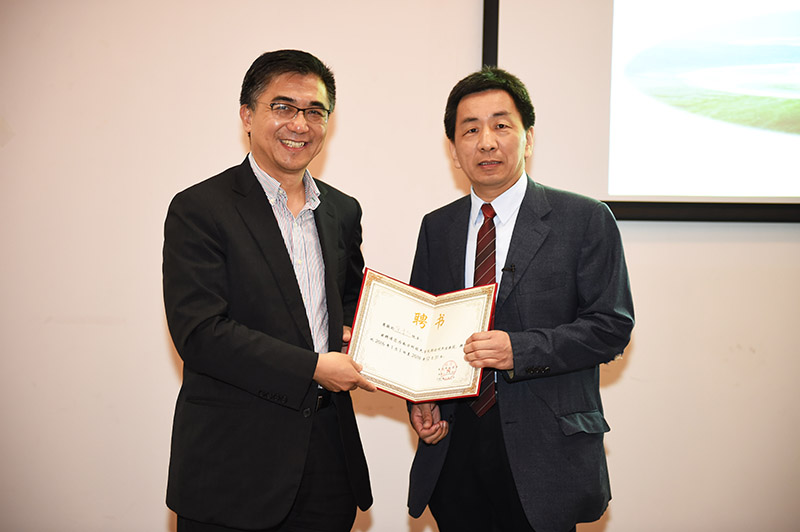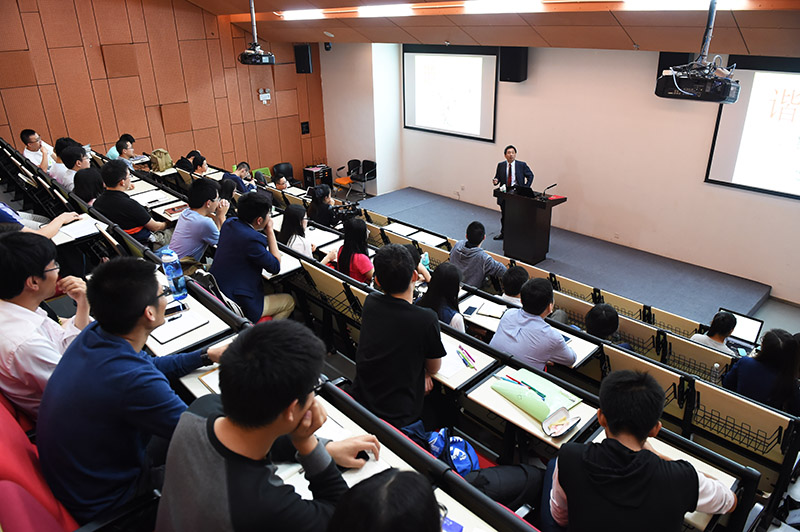On April 15, 2016, Ni Jinren, Academician of Chinese Academy of Sciences and professor in the College of Environmental Science and Engineering at Peking University, gave an excellent speech “Of Rivers” in the 68th SUSTech Lecture, hosted by Vice President Tang Tao.
Academician Ni Jinren has contributed a lot to river dynamics, river morphology and river pollution control technology. The team he led has won Second Prize of National Science and Technology Progress Award and Second Prize of State Technological Invention Award.

Prof. Tang Tao firstly made a brief introduction to Academician Ni Jinren and on behalf of SUSTC, he issued appointment letter to engage Academician Ni Jinren as the chair professor of School of Environmental Science and Engineering.

【To Know Rivers】
At the beginning of the lecture, Professor Ni Jinren explained the necessity of “discussing rivers”: rivers are closely related to human civilization, and as a ecosystem, they are very important. Then, he demonstrated some aspects from which we can know rivers such as comprehensive classification, stratified structure, geological history and ecological characteristics under different climates. Professor Ni described the comprehensive classification and encoding of river as the ID card and DNA of river. “In the future, river management should be similar to the barcode in supermarkets so as to upgrade it to an upper level.” He explained.
【To Analyze the Relationship Rivers Involves in】
Rivers have functions of releasing flood waters, transport and so on. Professor Ni took Dasha River nearby the campus for example to discuss its malfunction problem. Then he extended his topic to the stern reality of rivers in China including river extinction and malfunction of the majority of remaining rivers. Based on the status quo, Professor Ni further analyzed the influence of human activities on rivers in order to know the basic relationship between human beings and rivers.
【To Harness Rivers】
“Traditional Chinese Medicine emphasizes the diagnosis of ‘look, listen, question and feel the pulse’. After we find the problems, we should learn how to solve them.” Professor Ni said. He introduced 3 perspectives step by step in order to “cure” rivers including system function, health consultation and pollution control. Among them, pollution control also has 3 phases: engineering activity, pollution abatement and ecological restoration. He mentioned that for many people, when they talk about river control they always jump to the phase of ecological restoration, which is inappropriate. It is recommended to work out different methods of treatment according to corresponding physical, chemical and biological indexes.
Professor Ni gave some cases and showed some pictures of rivers he took in Germany to extend his expectation to a harmony between human and rivers.
In Q&A session, students had an active communication with Academician Ni.
Proofread By
Photo By